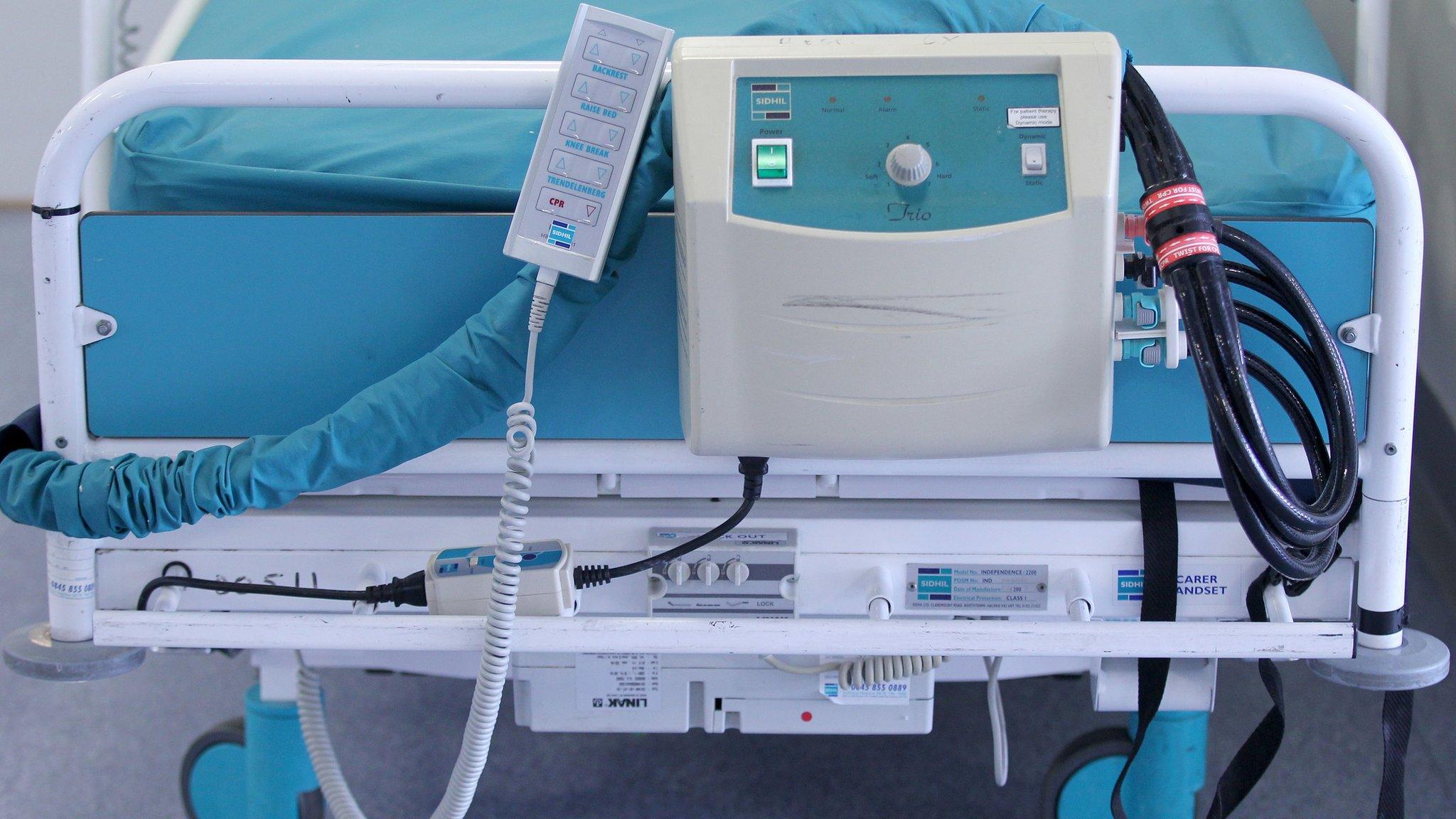NHS protest: Tens of thousands march against 'hospital cuts'
- Published
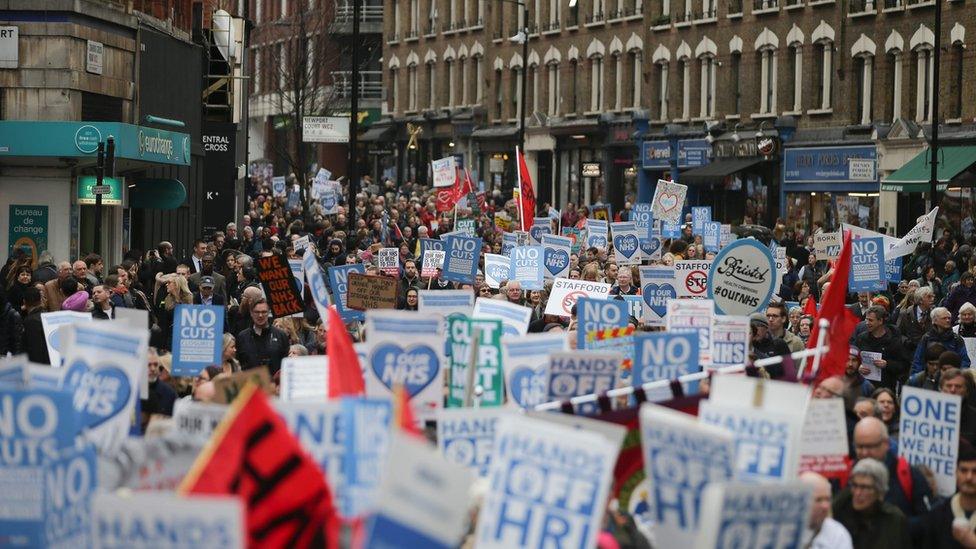
Tens of thousands of people - including NHS workers, campaigners and union representatives - have marched in London to protest against "yet more austerity" in the health service.
Protesters on the #OurNHS march wanted to draw attention to plans which could see hospital services in nearly two-thirds of England cut back.
Union leaders say many NHS services "are on their knees".
The Department of Health says it is investing an extra £4bn in the NHS.
Organisers say that "at least 250,000" people took part in the march, which began in Tavistock Square and ended in Westminster, where speakers including Labour leader Jeremy Corbyn addressed the crowd.
There is no official estimate of the numbers who took part.
Aerial footage shows thousands of people filling Parliament Sq
Mr Corbyn called for the government to provide more funding for the health service in next week's Budget.
Speaking to the protesters in Parliament Square, he said: "The NHS is in crisis, in crisis because of the underfunding in social care and the people not getting the care and support they need.
"It is not the fault of the staff. It is the fault of a government who have made a political choice."
The protest organisers say the government's proposed Sustainability Transformation Plans (STPs) across the NHS in England are a "smokescreen for further cuts" and the "latest instruments of privatisation".
These proposals involve the complete closure of some hospitals and the centralising of some services such as A&E and stroke care on fewer sites.
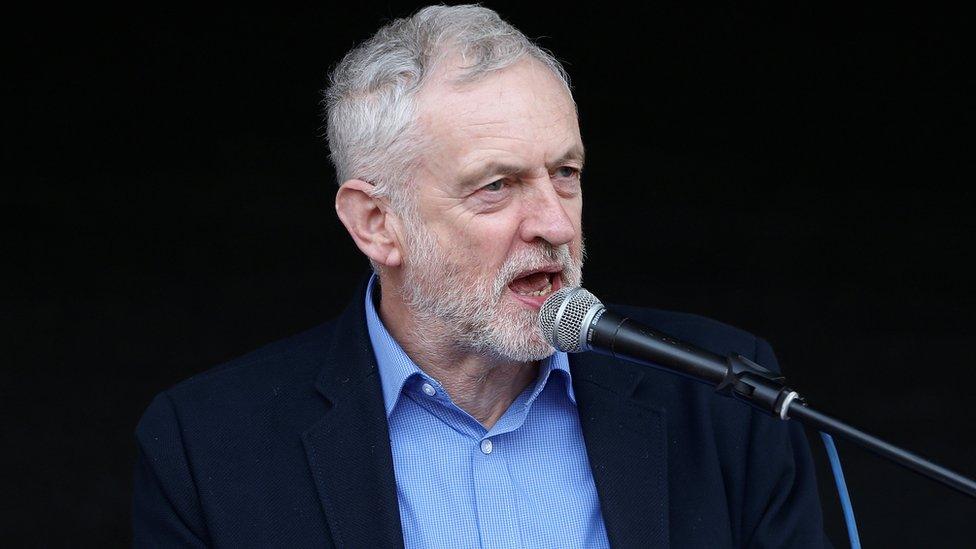
Labour leader Jeremy Corbyn addressed the crowd in Parliament Square
Last month the BBC revealed that hospital services in nearly two-thirds of England could be cut or scaled back.
NHS England said the money saved from hospital budgets would be reinvested into community services.
An NHS spokesman added that although budgets were increasing, they were not keeping pace with demand.
He added: "NHS leaders want to redirect resources in some cases to try and make the money go further."
Nurses, a teacher, and a writer explain why they joined the march
Unite leader Len McCluskey tweeted from the protest, saying: "I'm marching because I am furious. Tories destroying the greatest gift the people of this country have created #SaveOurNHS."
The union says "hospitals, GPs, mental health, ambulance and community services are on their knees".
A Department of Health spokesperson said: "We are committed to the NHS which is why we're investing £10bn in its own plan for the future, including £4bn extra this year to transform services and improve standards of care."
The Conservative Party and Downing Street have been approached for comment.
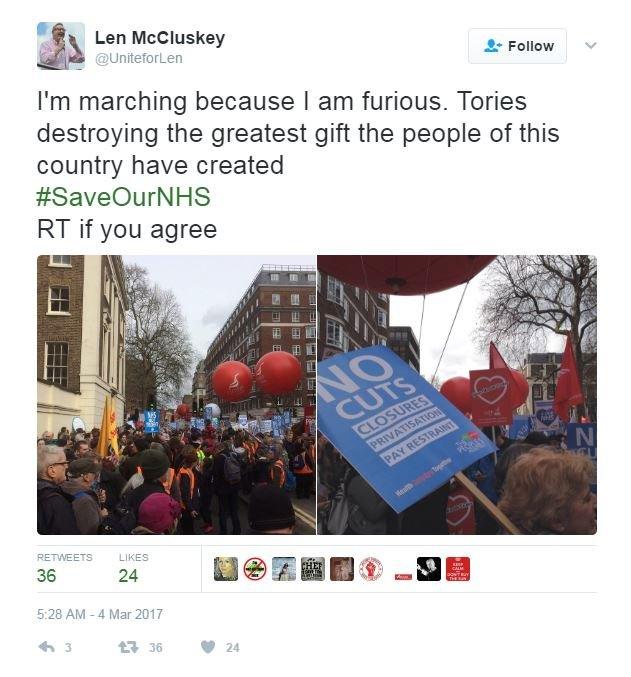
Deputy chairman of the British Medical Association council Dr David Wrigley said the march was "a cry for help for anyone who uses the NHS" which was "in such a desperate situation".
"We need to highlight it. As a doctor I see day to day the serious pressures in the NHS due to the funding cuts from the government," he said.
Campaigner Dr Ben White tweeted: "#OurNHS sees you from the cradle to grave, with or without insurance. Sadly we must now fight to keep it that way."

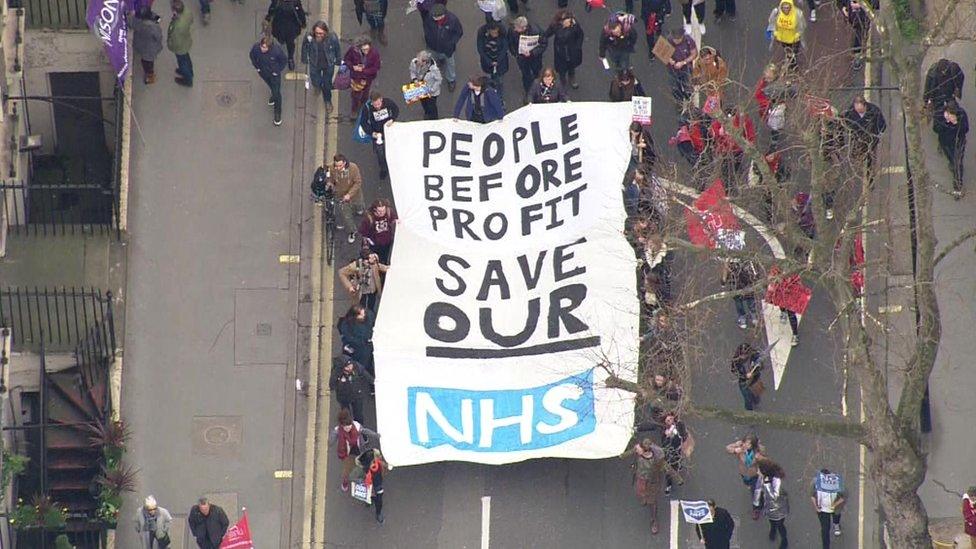
About 150 coaches are thought to have brought protesters from across the country to the march in London
From the scene: Richard Lister, BBC News
They arrived by the bus load this morning; 150 coaches brought protesters from across England and Wales.
They set off from Tavistock Square - some blew whistles, some chanted, one man was dressed as a "therapy dog" for overworked NHS staff.
Most are carrying "#OurNHS" placards; others said "Dump Trump", "No to racism" and "Migrants make our NHS".
One of the organisers, John Rees, told me Brexit had consumed much of the "oxygen of debate" in recent months but the NHS was rising up the national agenda again.
London-based nurses Sebastian Birch and Danny Goddard told me problems had mounted under Labour and Conservative governments, to the point where they now see the crisis as a "social welfare issue" not just one of healthcare funding.
- Published4 March 2017
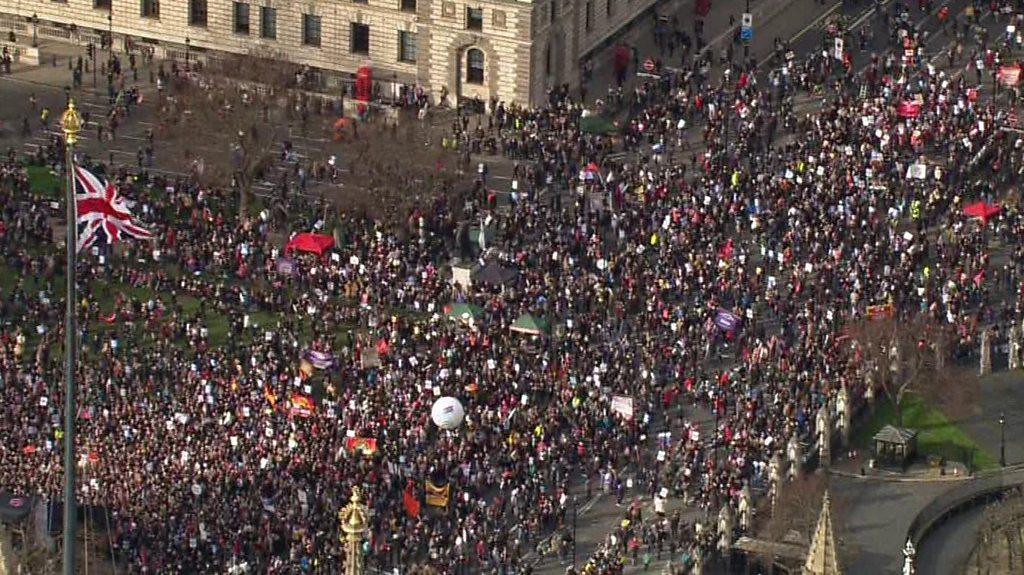
- Published4 March 2017
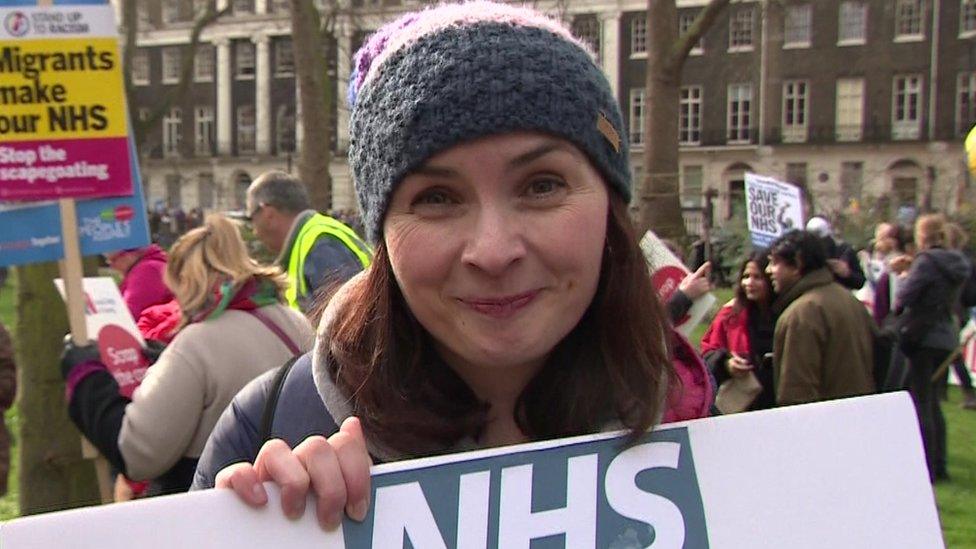
- Published28 February 2017
- Published21 December 2016
- Published13 January 2017
